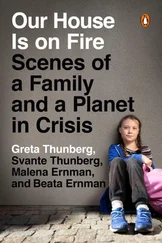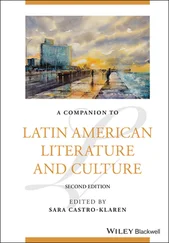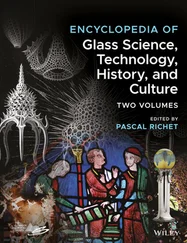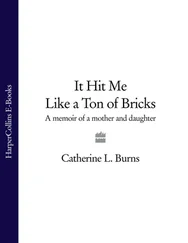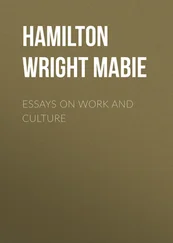1 ...7 8 9 11 12 13 ...54 The next year, at sixteen, Lori dropped out of high school and married. She immediately found herself trapped in an abusive home just like the one she’d tried to escape. Her new husband would lock her in a bedroom to keep her from seeing her family. “It was almost like a prison,” Aunt Wee later told me.
Fortunately, both Jimmy and Lori found their way. Jimmy worked his way through night school and landed a sales job with Johnson & Johnson. He was the first person in my family to have a “career.” By the time she turned thirty, Lori was working in radiology and had such a nice new husband that Mamaw told the entire family, “If they ever get divorced, I’m following him.”
Unfortunately, the statistics caught up with the Vance family, and Bev (my mom) didn’t fare so well. Like her siblings, she left home early. She was a promising student, but when she got pregnant at eighteen, she decided college had to wait. After high school, she married her boyfriend and tried to settle down. But settling down wasn’t quite her thing: She had learned the lessons of her childhood all too well. When her new life developed the same fighting and drama so present in her old one, Mom filed for divorce and began life as a single mother. She was nineteen, with no degree, no husband, and a little girl—my sister, Lindsay.
Mamaw and Papaw eventually got their act together. Papaw quit drinking in 1983, a decision accompanied by no medical intervention and not much fanfare. He simply stopped and said little about it. He and Mamaw separated and then reconciled, and although they continued to live in separate houses, they spent nearly every waking hour together. And they tried to repair the damage they had wrought: They helped Lori break out of her abusive marriage. They lent money to Bev and helped her with child care. They offered her places to stay, supported her through rehab, and paid for her nursing school. Most important, they filled the gap when my mom was unwilling or unable to be the type of parent that they wished they’d been to her. Mamaw and Papaw may have failed Bev in her youth. But they spent the rest of their lives making up for it.
I was born in late summer 1984, just a few months before Papaw cast his first and only vote for a Republican—Ronald Reagan. Winning large blocks of Rust Belt Democrats like Papaw, Reagan went on to the biggest electoral landslide in modern American history. “I never liked Reagan much,” Papaw later told me. “But I hated that son of a bitch Mondale.” Reagan’s Democratic opponent, a well-educated Northern liberal, stood in stark cultural contrast to my hillbilly Papaw. Mondale never had a chance, and after he departed from the political scene, Papaw never again voted against his beloved “party of the workingman.”
Jackson, Kentucky, would always have my heart, but Middletown, Ohio, had most of my time. In many ways, the town where I was born was largely the same as the one my grandparents had migrated to four decades earlier. Its population had changed little since the 1950s, when the flood of migrants on the hillbilly highway slowed to a dribble. My elementary school was built in the 1930s, before my grandparents left Jackson, and my middle school first welcomed a class shortly after World War I, well before my grandparents were born. Armco remained the town’s biggest employer, and though troubling signs were on the horizon, Middletown had avoided significant economic problems. “We saw ourselves as a really fine community, on par with Shaker Heights or Upper Arlington,” explained a decades-long veteran of the public schools, comparing the Middletown of yore to some of the most successful of Ohio’s suburbs. “Of course, none of us knew what would happen.”
Middletown is one of the older incorporated towns in Ohio, built during the 1800s thanks to its proximity to the Miami River, which empties directly into the Ohio. As kids, we joked that our hometown was so generic that they didn’t even bother to give it a real name: It’s in the middle of Cincinnati and Dayton, and it’s a town, so here we are. (It’s not alone: A few miles from Middletown is Centerville.) Middletown is generic in other ways. It exemplified the economic expansion of the manufacturing-based Rust Belt town. Socioeconomically, it is largely working-class. Racially, there are lots of white and black people (the latter the product of an analogous great migration) but few others. And culturally, it is very conservative, although cultural conservatism and political conservatism are not always aligned in Middletown.
The people I grew up around are not all that dissimilar from the people of Jackson. This is especially obvious at Armco, which employed a plurality of the town’s population. Indeed, the work environment once mirrored the Kentucky towns that many of the employees came from. One author reported that “a sign over a doorway between departments read, ‘Leave Morgan County and Enter Wolfe County.’” [11] Kirby, “The Southern Exodus,” 598.
Kentucky—down to its county rivalries—moved with the Appalachian migrants to town.
As a kid, I sorted Middletown into three basic geographic regions. First, the area surrounding the high school, which opened in 1969, Uncle Jimmy’s senior year. (Even in 2003, Mamaw called it the “new high school.”) The “rich” kids lived here. Large homes mixed comfortably with well-kept parks and office complexes. If your dad was a doctor, he almost certainly owned a home or had an office here, if not both. I dreamed that I’d own a house in Manchester Manor, a relatively new development not a mile from the high school, where a nice home went for less than a fifth of the price of a decent house in San Francisco. Next, the poor kids (the really poor kids) lived near Armco, where even the nice homes had been converted into multi-family apartment units. I didn’t know until recently that this neighborhood was actually two neighborhoods—one inhabited by Middletown’s working-class black population, the other by its poorest white population. Middletown’s few housing projects stood there.
Then there was the area where we lived—mostly single-family homes, with abandoned warehouses and factories within walking distance. Looking back, I don’t know if the “really poor” areas and my block were any different, or whether these divisions were the constructs of a mind that didn’t want to believe it was really poor.
Across the street from our house was Miami Park, a single city block with a swing set, a tennis court, a baseball field, and a basketball court. As I grew up, I noticed that the tennis court lines faded with each passing month, and that the city had stopped filling in the cracks or replacing the nets on the basketball courts. I was still young when the tennis court became little more than a cement block littered with grass patches. I learned that our neighborhood had “gone downhill” after two bikes were stolen in the course of the week. For years, Mamaw said, her children had left their bikes unchained in the yard with no problems. Now her grandkids woke to find thick locks cracked in two by dead-bolt cutters. From that point forward, I walked.
If Middletown had changed little by the time I was born, the writing was on the wall almost immediately thereafter. It’s easy even for residents to miss it because the change has been gradual—more erosion than mudslide. But it’s obvious if you know where to look, and a common refrain for those of us who return intermittently is “Geez, Middletown is not looking good.”
In the 1980s, Middletown had a proud, almost idyllic downtown: a bustling shopping center, restaurants that had operated since before World War II, and a few bars where men like Papaw would gather and have a beer (or many) after a hard day at the steel mill. My favorite store was the local Kmart, which was the main attraction in a strip mall, near a branch of Dillman’s—a local grocer with three or four locations. Now the strip mall is mostly bare: Kmart stands empty, and the Dillman family closed that big store and all the rest, too. The last I checked, there was only an Arby’s, a discount grocery store, and a Chinese buffet in what was once a Middletown center of commerce. The scene at that strip mall is hardly uncommon. Few Middletown businesses are doing well, and many have ceased operating altogether. Twenty years ago, there were two local malls. Now one of those malls is a parking lot, and the other serves as a walking course for the elderly (though it still has a few stores).
Читать дальше
Конец ознакомительного отрывка
Купить книгу
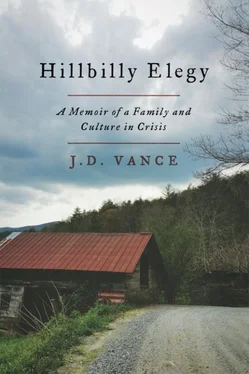
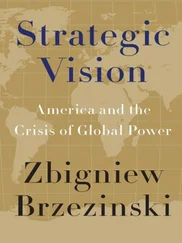

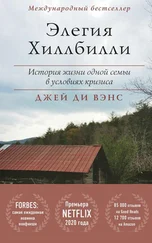
![Джей Вэнс - Элегия Хиллбилли [litres]](/books/399146/dzhej-vens-elegiya-hillbilli-litres-thumb.webp)
